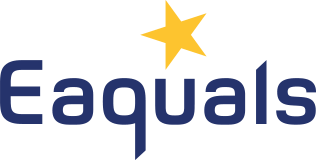Get to know: Peter Brown, Eaquals Founder Chair
‘Be passionate, be prepared, be open-minded, be a learner, and be committed to giving something back too.’

Could you tell us something about your early career in teaching?
I started teaching in Asti and Biella in north-western Italy in1969-1970. I had three days training in Bologna, led by a man who later became a magician and fortune-teller. He was an unexpectedly good teacher trainer considering his unorthodox background.
What big changes have you noticed in the language teaching field since you started?
Positives:
The move from teacher-focused to learner-focused. The introduction and subsequent revision of the CEFR. The introduction of pre-service and in-service qualifications and the move to CPD – hopefully for all staff, not just teachers. And many, many others – for example, the move away from “method” teaching.
Negatives:
An over-emphasis on testing, rather than teaching. The belief in league tables as reliable performance indicators. The misuse of technology. The lack of knowledge about the ‘hard’ sciences including the lack of interdisciplinary studies, for example, the thus-far marginal impact on teaching and methodology of neurolinguistics, or longitudinal studies, for example, the study of the long-term impact of CLIL.
When and why did you create Eaquals?
I got involved with Eaquals, as it was to become, in 1989-1990, before it was formally founded in Trieste 2nd December 1991, where Richard Rossner and Frank Heyworth were co-signatories. The other co-founder colleagues were Arne Kasten, Eoin O’Brien, Javier Lacunza Sr, Mary Towers, Patrick Clare, Tony Duff, Virginia Cowley, and myself.
There had been several strands that came together, partly by coincidence: we had been talking in AISLi (the Italian association) for some time about an EU-wide organisation, I just happened to be in Germany when the Berlin wall was torn down and the excitement and hope was contagious. But I think the two critical moments were when I attended a British Council-hosted seminar in London run by John Trim with the theme of ‘Quality’ and here I first met several of the future co-founders of Eaquals from Bell, Eurocentres and IH, and when Patrick Clare and I attended a UK EFL association conference in Edinburgh in 1990 and I was given the task to present our European association proposal. This had dramatic and unforeseen consequences – the proposal was enthusiastically received (I still have the scars from Dave Allen shaking my hand) but that association split, more or less on the spot. This had not been our intention at all. We felt we had failed, and failed miserably. But that evening, at dinner – in a great restaurant chosen by Frank – it became apparent that there was indeed support and encouragement from influential members of our professional community. And John Trim was unfailing in his encouragement.
We then had follow-up meetings in 1991 – including a difficult one in Paris where we took some time before agreeing on key principles such as no membership without passing the inspection (yet to be written), no fudging – schools would have to pass all parts to become a member (revolutionary thought at the time), a criterion based inspection scheme, supported by public Charters and a Code of Practice, no borders within Europe – no East-West divide, no group membership (tough one that) each school must pass on individual merit, and the equivalency principle – represented by the mathematical symbol ‘≡’ in our original Eaquals logo. This meant that we were not looking for orthodoxy or homogeneity, not seeking schools one a clone of the other, rather individual excellence and a “say what you do, do exactly what you say” approach to advertising.
Yet we managed to form a network – and network of just 10 individuals – and it is that network which was to achieve so much in such a short space of time. We had a vision and we stuck to it – no matter what.
Could you tell me about your current position/role in Eaquals?
I currently sit on the Board as the Founder Chair. I represent Eaquals in third-party forums such as the Council of Europe’s ECML meetings of the Professional Network Forum (PNF), which links key associations together. In particular, I look after the geo-political interests of Eaquals and in promulgating the spirit of Eaquals to the wider world by fostering our “hearts-and-minds” approach that has led to the successful completion and publication of so many of our projects and which has shown itself to be so attractive to so many of you.
What area of research are you currently most interested in?
I am very much a Renaissance Animal, so all aspects of human endeavour interest me – to the extent I do not understand why there should be the humanities – sciences divide. Turner and Einstein both investigated the nature of Nature, form in movement, and the essential qualities of light. The only substantive difference was that they used different languages and logics to express their findings. One used the language of mathematics, the other the language of paint. They weren’t the same but they were, in my view, equivalent. And equally intellectually rigorous.
What advice would you give to a new teacher/trainer starting out in the language teaching sector?
Be passionate, be prepared, be open-minded, be a learner, and be committed to giving something back too.



